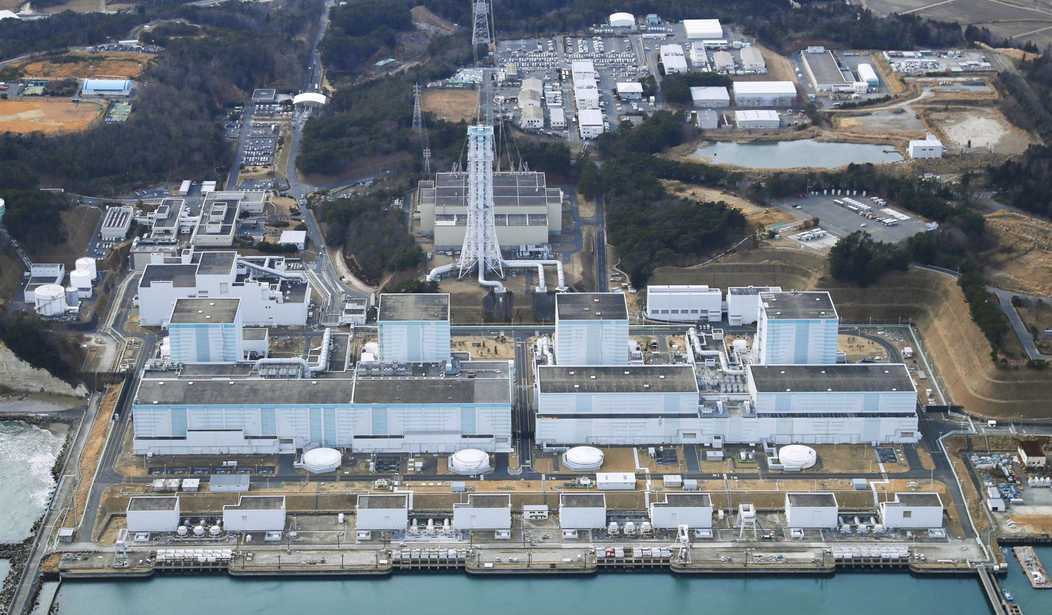It has been nearly 12 years since a major earthquake led to a meltdown at the Fukushima nuclear plant. After that disaster, Japan appeared to be moving away from nuclear power for good. But the invasion of Ukraine has changed things. Now that supplies of oil and gas have been disrupted by Putin and prices are up, Japan is once again turning toward nuclear power for the future.
Japan adopted a plan on Thursday to extend the lifespan of nuclear reactors, replace the old and even build new ones, a major shift in a country scarred by the Fukushima disaster that once planned to phase out atomic power.
In the face of global fuel shortages, rising prices and pressure to reduce carbon emissions, Japan’s leaders have begun to turn back toward nuclear energy, but the announcement was their clearest commitment yet after keeping mum on delicate topics like the possibility of building new reactors.
Under the new policy, Japan will maximize the use of existing reactors by restarting as many of them as possible and prolonging the operating life of aging ones beyond a 60-year limit. The government also pledged to develop next-generation reactors.
Whether or not Japan can make up for lost time remains to be seen but the new plan is definitely ambitious.
Nuclear energy accounts for less than 7% of Japan’s energy supply, and achieving the government’s goal of raising that share to 20-22% by 2030 will require about 27 reactors, from the current 10 — a target some say is not achievable. The new policy also does not help address imminent supply shortages because reactors cannot be restarted quickly enough.
Japan’s current power problems made news in March when the eastern part of Tokyo narrowly avoided blackouts. That close call was also caused by a strong earthquake which hit the same area as the 2011 quake.
Up to 3 million households faced the threat of blackouts on Tuesday night, as utility Tokyo Electric Power Co (Tepco) warned of tight supply and surging demand as snow fell across Tokyo and the temperature dropped to 2 degrees Celsius (35.6 Fahrenheit).
But by later in evening, the country appeared likely to avoid blackouts, the Ministry of Economy, Trade and Industry (METI) said…
A magnitude 7.4 earthquake last week off the northeastern coast – the same region devastated by an earthquake and tsunami in 2011 – temporarily cut power to about 2 million households, including hundreds of thousands in Tokyo…
The quake hit six thermal plants, knocking them out of operation in areas served by Tepco and Tohoku Electric Power Co (9506.T), and the damage could leave some of them idle for weeks or even months, Hagiuda said.
The near-outage in March happened during a snowstorm but a few months later people in Tokyo were once again warned to use less energy in the midst of a heat wave or risk outages that could impact millions.
Japan’s government has warned millions of people in the Tokyo region to save energy or face power cuts, as the capital battles record June temperatures after a premature end to the rainy season.
Temperatures of 35C (95F) were forecast in the city throughout the day, with similarly extreme weather expected for the rest of the week, according to the Japanese meteorological agency.
“We ask the public to reduce energy consumption during the early evening hours when the reserve ratio falls,” Yoshihiko Isozaki, the deputy chief cabinet secretary, told reporters.
Clearly the Tokyo areas needs more power to handle power disruptions and extreme weather events but the rising prices of oil and gas caused by the invasion of Ukraine have made fossil fuels an expensive option for consumers. So nuclear power is getting a second look. But of course not everyone is happy with the new plan.
“All of Japan’s nuclear power plants are on the coast … and this is a country that has earthquakes, tsunamis and volcanoes,” says Tsuyoshi Suda, a member of local anti-nuclear group Kaze no Kai, as he looked at the plant – complete with a newly built 29-metre high seawall – from a nearby beach.
“For Japan to keep putting its faith in nuclear power plants is like a form of self-destruction.”
There aren’t any perfect options at the moment. Nuclear power does present some unique risks but it also has some big benefits. Like Germany, which has also changed course on nuclear power this year, Japan is being forced to acknowledge the path forward probably requires more nuclear power.









Join the conversation as a VIP Member